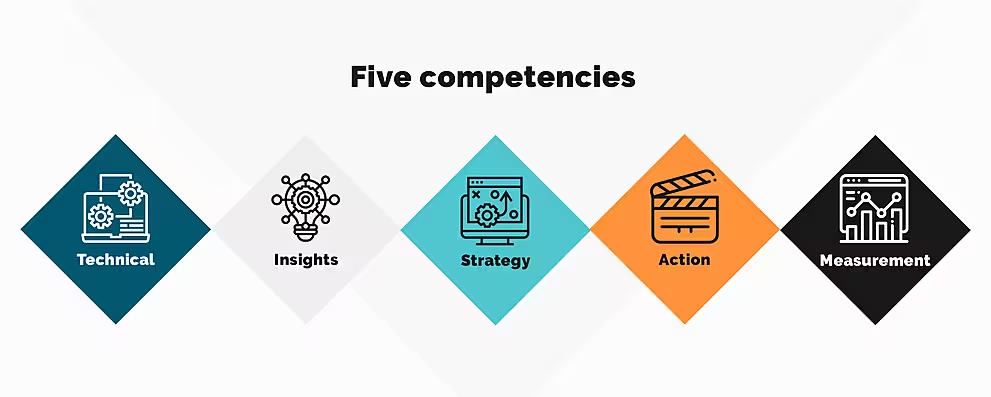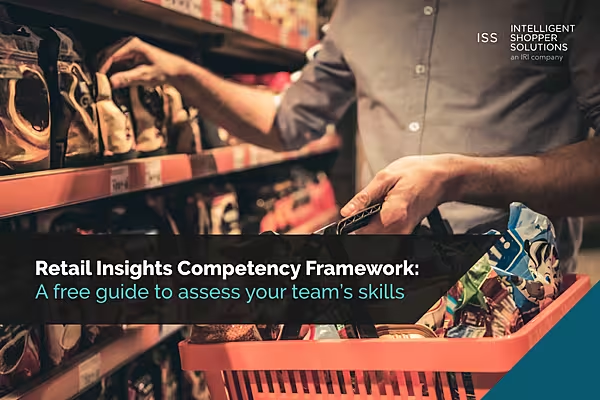To make investment in analytical tools worthwhile, teams must integrate insights into everyday behaviour. Dr. Phil Hardy, Vice President Of Retail Engagement at Intelligent Shopper Solutions (ISS) explores the subject.
Businesses spend large amounts of money on analytical tools and techniques, but this initial investment is often easy.
Millions can be wasted through missed opportunities because of poor implementation. That is why it is vital to ensure your teams are competent in the end-to-end insight cycle.
Driving Value From Insight Isn't Easy
Ask a retail executive if they have a certain analytical capability, and the answer is usually binary: 'Yes, we have AI,' or 'We can do predictive'. This usually just means that they have paid for a tool or a technique – and in many cases, it can be a large investment.
For some executives, that is the extent of their knowledge. They may know of a couple of well-circulated use-cases that have become famous in the business, but they can't go much further.
Other executives will have solid proof that their investments are driving returns, thanks to their financial reporting, including measured IRR (Internal Rate of Return).
And yet, others will be reassured by knowing that they have the right leadership, and the right cultural training and assessment frameworks in place to ensure their teams continually make the most of their analytical capability.
Building The Capability Is Just The Beginning Of An Ongoing Process
Once the investment decision has been made, an implementation period typically begins. This stage focuses on the technical build of the tool or capability, managed by tech-minded people (usually from IT), often with the added benefit of professional project management with clear deliverables.
These processes can be highly technical and delivered under pressure, involving multiple and senior stakeholders. The trouble is, the focus and pace often diminish once the tool has gone live. And this is just the technical implementation that enables future return on investment. No value has been delivered yet!
Moving Beyond The Launch Requires Just As Much Attention
Intelligent Shopper Solutions (ISS) has worked with a number of grocery retailers to initialise and embed customer insight tools into their businesses. The retailer gains the greatest value when they embrace a holistic plan that helps them fully integrate insights into their decision-making after the initial launch.
This happens in five key stages:
Using the tool
Once you've set people up with the tool, keep checking in to see if – and how – they're continuing to use it beyond the training sessions. Are they taking advantage of the full range of its capabilities?
Generating insights
Once users are able to glean insights from the tool, you can work with them to ensure they translate these into ideas that can be applied within the business.
Developing strategy
Consider how – if at all – insights are being used to drive your overall business strategy. If they're simply being applied tactically, one at a time, think about working towards more strategic implementation.
Implementing actions
It's one thing to gain valuable insights, but another to actually use them to put ideas into action. If people are doing this, are they doing it in a measurable way?
Measuring activity
Monitor the actions your users are taking, so they can learn from their successes and failures. Then you can feed the resulting learnings back into the overall business strategy.
Grocery retailers operate in extremely busy environments. As a result, there can be great insights that do not lead to action, actions that are not measured, results without learning experiences, and so on.
Hence, it is vital to have a plan to stay on top of all these elements within the end-to-end insights cycle.
To create an insight-driven organisation, it is crucial to instil a critical-thinking mindset in people.
Certainly, putting the technical capabilities in place is a necessary step. But the passion, curiosity and skills of people are what will truly drive results.
Tools Cannot Make All Decisions
Over the years, ISS has heard many retailers say, "We just want to be told what to do!" as they seek increased value from their tools. Some tools claim to be able to do just this – tell you what to do – thus cashing in on the publicity and trends around AI and machine learning.
And some of the advances are impressive. Technology certainly can help simplify each stage of the full embedding process.
But this doesn't mean a retailer can neglect to nurture the right behaviour and competency in its teams.
Change takes time. Traditional thinking still exists among many grocery retailers.
The tendency to act on instinct rather than on insight and data is still commonplace. To focus totally on sales and profit numbers while largely ignoring the importance of the customer in driving the performance of these crucial KPIs is a mistake.
'Old school' category managers who have not embraced the theory of formal category management, let alone grasp the complexities of customer insight-driven category reviews, are still responsible for a large share of retail sales. While they can still be successful at driving the bottom line, they will find it harder and harder to adapt to ever-growing customer needs if they don't develop insight skills.
These skillsets can be hard to find, particularly for regional retailers with a limited local talent pool and lacking relocation funds. It is important to give teams the chance to adopt new technology, glean insights, take action, measure their activity, and develop insight-driven strategies. And, of course, they must be held accountable. Sometimes tough decisions need to be made.
Change needs to come from the top:
- Insight-driven thinking should be demonstrated from the top down to convey its importance to teams.
- Leaders should ask 'Why?' a lot to encourage inquisitive mindsets – and use of those insight tools!
- Business and personal objectives should reflect the importance of insight-driven strategy and the use of analytics/technology.
- Incentives are important – what gets measured gets done!
- The nature of the beast means that it is not always perfect: some things work, and some do not. Team members should be encouraged to try things without being terrified of failing.
- Celebrate success and encourage teams to share results, generate best practice and build overall organisational capability.
Insight Competency Framework By ISS
Building on the implementation stages above, ISS has developed a simple, effective framework that establishes five Insights Cycle Competencies for grocery retailers.

These provide an approach that sets expectations for team members around using insights and analytics in the business, to ensure you get the most from your investment.
Requirements vary by job role, of course. Analysts require greater technical competency than category managers. Category managers need stronger strategic competency than category assistants.
ISS has worked with retailers to help assess their teams' current status, then put training programmes in place to help members reach the required level of competency. It has also helped our clients to identify best-in-class examples of the competencies in action, create case studies, and reward performance.
Insight tools not only drive great ROI, but they also help transform businesses. But, this only happens when the most important assets – the employees – turn those insights into action and learn from their decisions.
Free Download: Measure Your Insight Proficiency Now
ISS has created a framework to define levels of competency in the five essential end-to-end Insights skills. This document can be used as a template to evaluate yourself or your team to see where skills can be enhanced to create a high-performing insights team.
For more information or to discuss any of the topics raised in the article above, contact ISS here.
© 2021 European Supermarket Magazine – your source for the latest Technology news. Sponsored post. Click subscribe to sign up to ESM: The European Supermarket Magazine.














